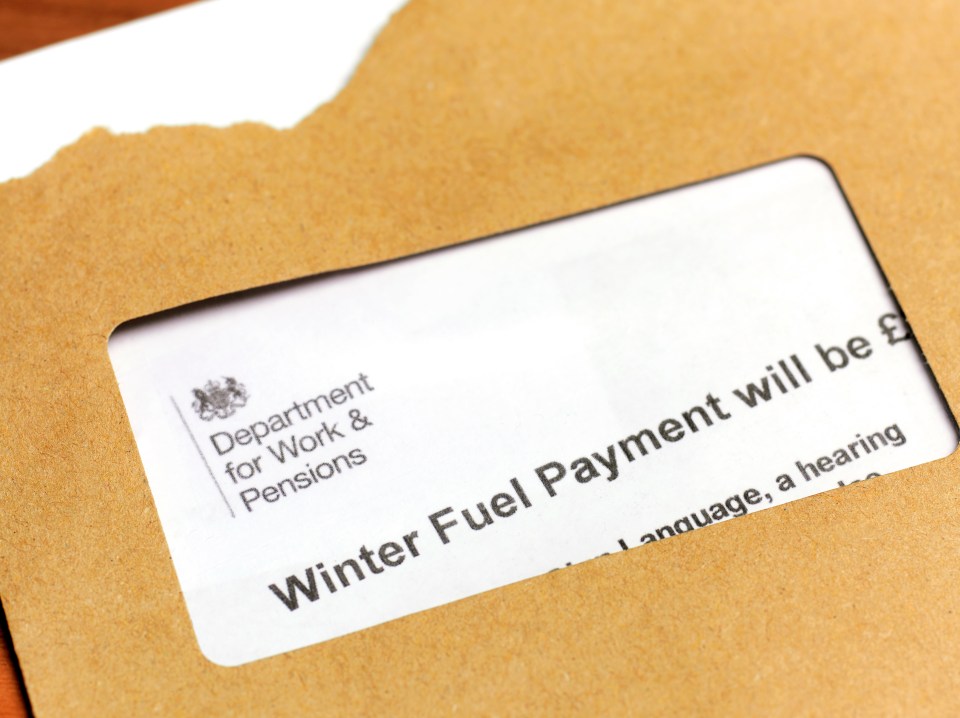THOUSANDS of households across the country have just hours left to claim the £300 winter fuel payment.
The government has warned that eligible people could risk losing out if they miss the deadline.
Brits who live abroad who need to apply via phone or in the post, have until March 31.
Those living abroad can apply for cash as long as they meet certain conditions.
If you do not live in the UK, you’re only eligible for the winter fuel payment if:
- you were born before 23 September 1958
- you get UK State Pension
- you have a genuine and sufficient link to the UK – this can include having lived or worked in the UK, and having family in the UK
- the UK is responsible for paying your benefits
- you moved to an eligible country before 31 December 2020 and are covered by the Withdrawal Agreement
These households can apply via post and will need to fill in the winter fuel payment claim form and post it to the Winter Fuel Payment Centre.
For British or Irish nationals living in Ireland, there is no need to have moved by 31 December 2020, but you will need to meet all of the other eligibility rules.
You must also be getting a qualifying means-tested benefit from the country you live in that is equivalent to:
- Pension Credit
- Universal Credit
- income-related Employment and Support Allowance (ESA)
- income-based Jobseeker’s Allowance (JSA)
- Income Support
- Working Tax Credit
- Child Tax Credit
Payments last year were worth between £300 and £600, depending on your specific circumstances.
This is because the amount included a “Pensioner Cost of Living Payment” – between £150 and £300.
However, this year, it will be worth £200 for eligible households or £300 for eligible households with someone aged over 80.
That means you could receive up to £300 in free cash depending on your circumstances.
You’ll get a letter telling you:
- How much you’ll get
- Which bank account it will be paid into
This comes as bills are predicted to fall by £137 a year this summer following a hefty rise in the coming days.
Cornwall Insight predicts the yearly cost of running your gas and electricity will fall to £1,732 this July, marking a 7% drop from April’s price cap.
The drop will mark the first time over three quarters that energy bills will fall for customers.
This latest prediction comes ahead of bills going up on average from April 1.
Dr Craig Lowrey, Principal Consultant at Cornwall Insight, said: “The latest forecast drop will bring some relief to households and the government, offering a welcome sign that energy prices are moving in the right direction.”
Looking ahead, experts at the firm predict bills to rise again in October, before falling again at the star of 2026.
The group said a potential cease fire between Russia and Ukraine brought some stability during February.
However, questions of the role of the US army brought fresh uncertainty to the market.
He added: “However, we mustn’t get ahead of ourselves. While prices are falling, recent patterns show the impact that wholesale market volatility can have on bills in the space of just a few days.”
In practice, most people will use less energy in the spring and summer months.
It is important to remember the figures released by Cornwall today are just a prediction.
The next price cap for July 1 until September 30 will be announced by Ofgem in May.
The cap impacts around 26million households on standard variable tariffs (SVTs) in England, Wales and Scotland .
Today’s news comes as households are bracing for the average energy bill to rise by £111 a year, or £9.25 a month from April 1.
The latest rise is because of an increase in gas prices across Europe, caused by a slump in the amount of gas that is held in storage across the continent.
Despite the rise, average bills remain considerably lower than during the peak of the energy crisis, which was fuelled by Russia‘s invasion of Ukraine in February 2022.
The war caused a spike in an already turbulent wholesale energy market, driving up costs for suppliers and customers.
Before the energy price shock, a standard annual bill was £1,084.

